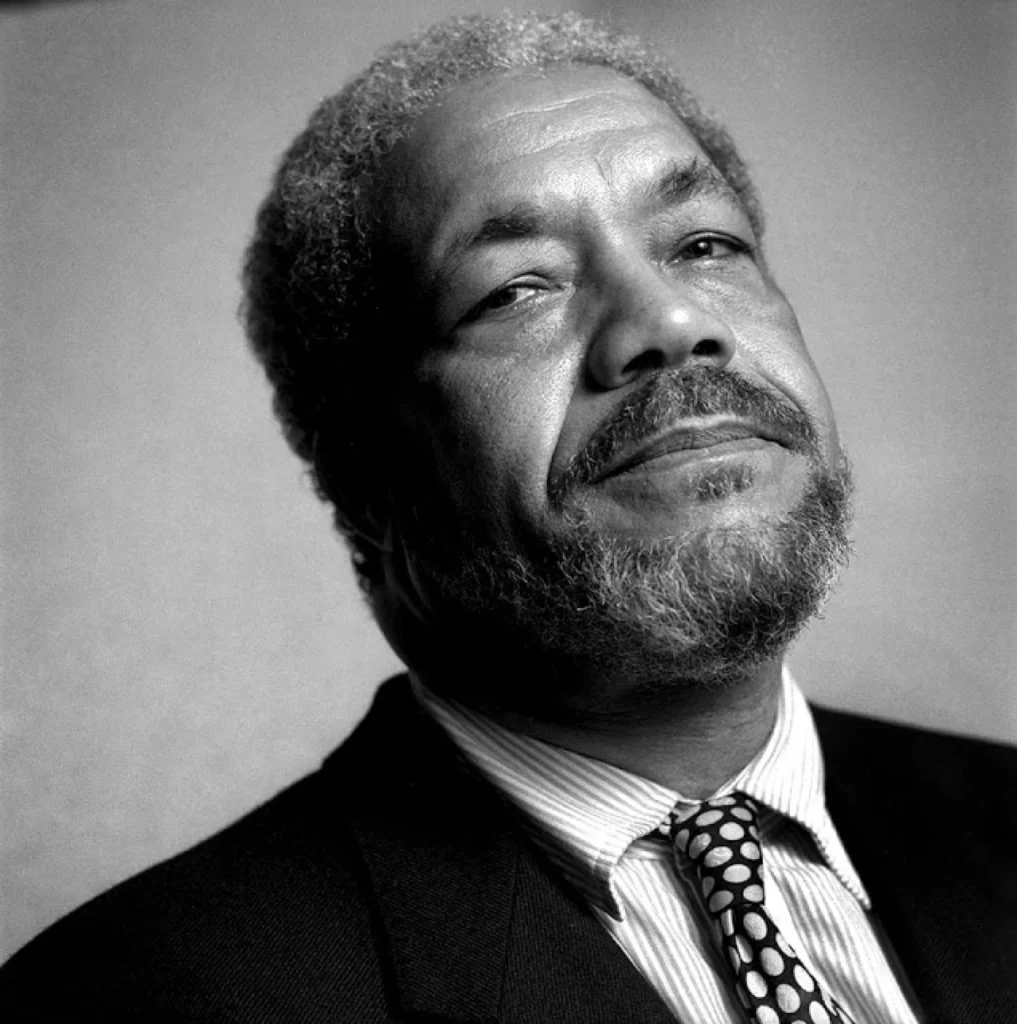
I’m dusting off Clifford Jordan’s Repetition for my feature in tonight’s Jazz à la Mode. It brought a warmth to my heart when it was released in 1984– the year I began hosting the show– for by then I’d been savoring the memory of having seen Jordan and pianist Barry Harris, with bassist Vishnu Wood and drummer Clifford Jarvis, at Hampshire College six years earlier. Their Monday evening concert took place during a period in which I saw an astonishing amount of live music, mostly jazz, that ranged from mainstream to post-hard bop to avant-garde. Jordan and Harris stood out as keepers of the bebop flame, and what impressed me most that night (and is true of this album), was the lyrical beauty of their playing on material that often drives other players to white heat extremes. I would go on to see Jordan several more times before he died in 1993 at 61, and a few years ago I attended a Sunday afternoon concert of his music that Arnie Perez presented at Bass Line, a lively social club in Mount Vernon. It featured the tenor players Patience Higgins and Grant Stewart and served as a reminder of Jordan’s deft skills as a writer and arranger. Like Jimmy Heath, he wrote and played mostly in small combo settings, but near the end of his career he had the opportunity on a few occasions to have his music played by a big band.
Jordan was born in Chicago on September 2, 1931. Lester Young was his inspiration and primary model, and while he was largely self-taught, he honed his sound at Du Sable High School, the legendary institution where two generations of South Side-born jazz musicians came under the tutelage of Capt. Walter Dyatt. He locked horns around town with fellow tenor masters John Gilmore, Johnny Gilmore, and Von Freeman, and shortly his arrival in New York in 1957, he recorded the classic Blue Note album, Blowing in From Chicago, with Gilmore. Over the next five years, he led a series of acclaimed recordings for Blue Note, Prestige, and Riverside, while working with the bands of Horace Silver, J.J. Johnson, and Kenny Dorham. Art Farmer was his front-line partner in Silver’s quintet, and 25 years later they reunited in a band led by the trumpeter. For the next decade they complemented each other beautifully on a handful of albums for Soul Note and Contemporary, including a session devoted to Billy Strayhorn’s music.
Bassist Bill Lee’s composition, “John Coltrane,” is a remarkably measured and moving tribute complete with the chant, “John Coltrane/Black Spirit.” It was introduced on Jordan’s 1974 album, Glass Bead Games, which he named after Herman Hesse’s 1940s novel exploring the duality of guru and disciple and the possibility of a universal harmony between nature and human experience. The album is one of several that Jordan led or produced for Strata-East Records, the musician-owned label established by Charles Tolliver and Stanley Cowell. Jordan’s output for the label was collected and reissued by Mosaic Records (the label took its name from one of his early ’60s compositions), and in reviewing it for Jazz Times, Ted Panken offered this summary of his style. “No better representation exists of Jordan’s narrative gifts– his lyricism, wit, mastery of changes-playing and vocalized tone, broad and burnished at all tempos and harmonic contexts, equally comfortable deploying the bright colors of the upper register and the dark hues of the tenor’s bottom.”
It took dedicated searching (i.e., time) to find some concert footage of Jordan on YouTube. Here he is with Art Farmer playing “Context,” a fast belop line composed by pianist Kenny Drew.
Here’s a great feature for Jordan, with Dizzy Gillespie, playing “‘Round Midnight.”
Lastly, from Repetition, here’s Jordan’s contrapuntal merging of classic bebop tunes by Fats Navarro and Tadd Dameron; both based on the standard, “Out of Nowhere.”